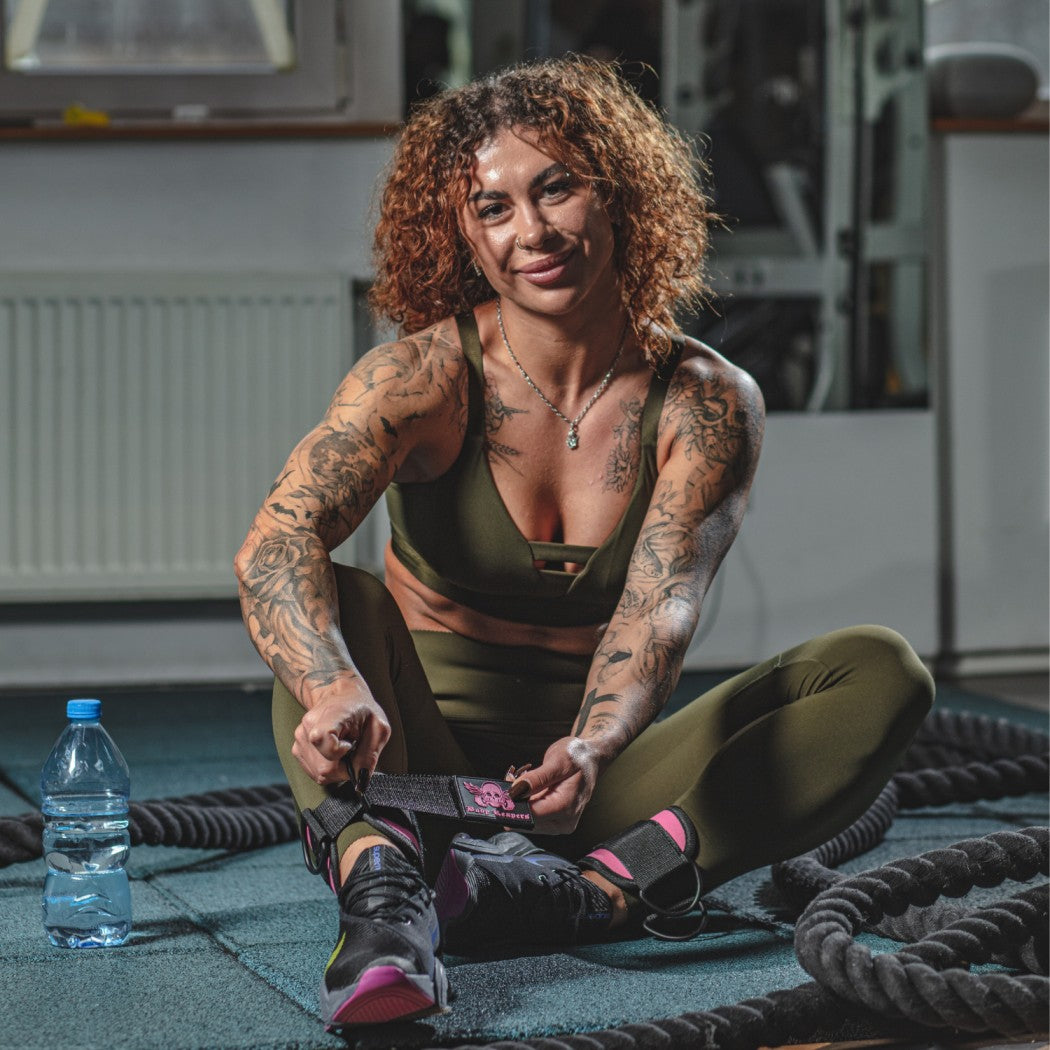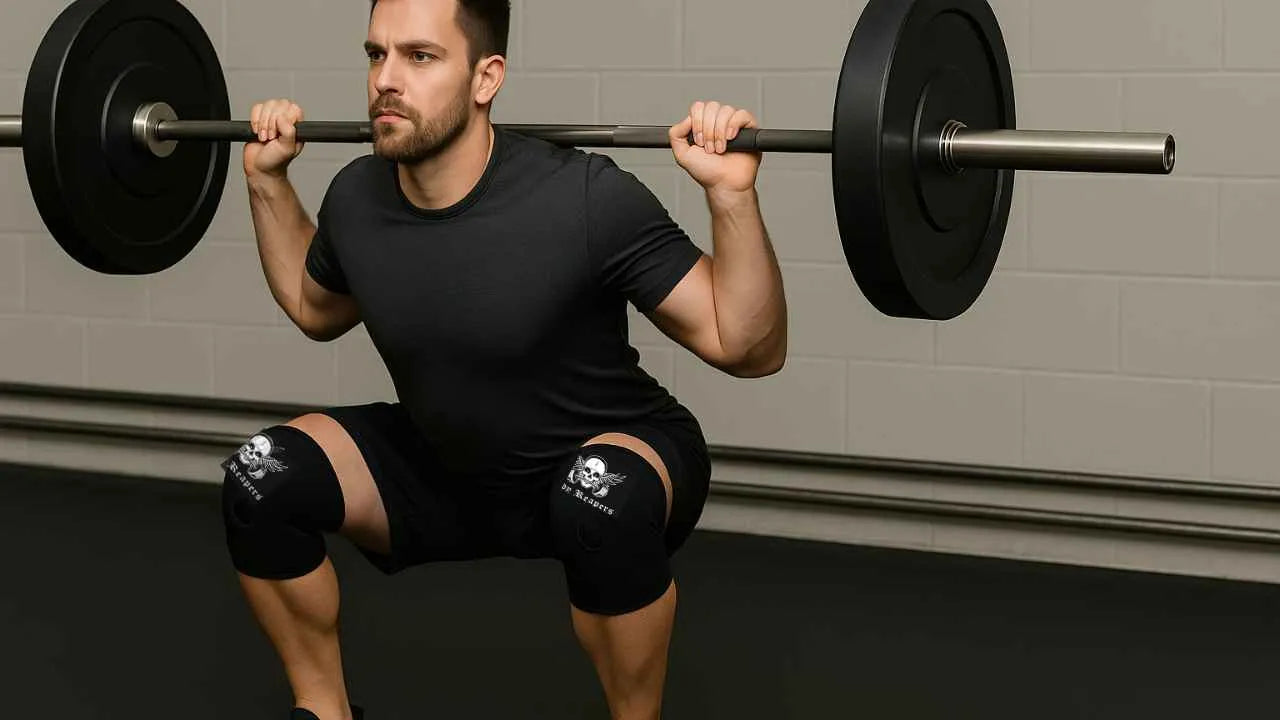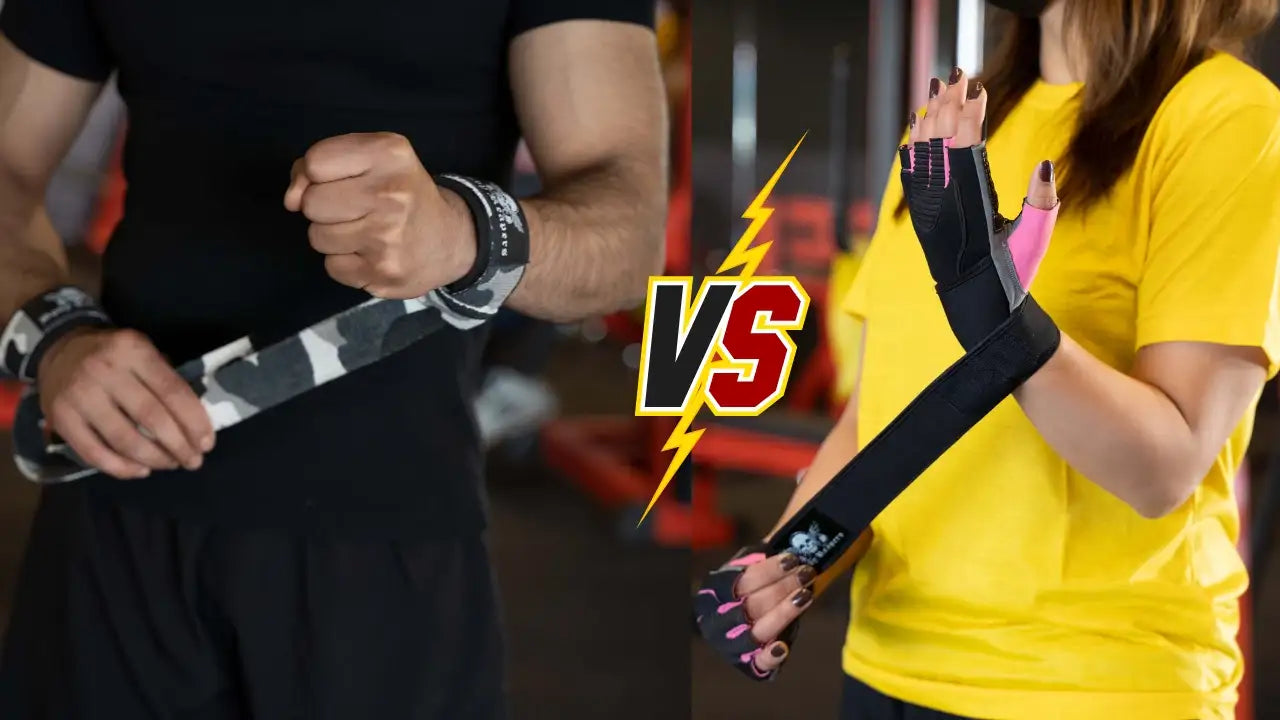If you’ve spent any time under a barbell, you already know the squat is the king of lower-body lifts. It builds strength, size, and athletic power. But it also puts much stress on your knees.
Many lifters reach a point where their legs feel strong, but their knees feel shaky. Sometimes the bar slips because of a lack of confidence, not a lack of strength. That’s when people start looking at knee sleeves for squats.
I’ve coached plenty of lifters through this exact decision. Some expect sleeves to add 40 pounds to their squat overnight. Others think they’re just a gimmick. The truth? They’re a helpful tool when used correctly. Let’s break down what they actually do, how much they can help, and who should wear them.
What Is the Purpose of Knee Sleeves for Squats?

Knee sleeves are compression garments made to slide over your knee joint. Most are built from neoprene, a stretchy material known for its warmth and elasticity.
When worn during squats, sleeves provide gentle compression, which improves blood flow and joint stability. That warmth also keeps the joint more mobile and reduces stiffness. Research shows compression gear can improve proprioception, your body’s ability to sense joint position, which helps you stay stable and in control under the bar.
Think of them as a supportive layer. They won’t fix bad form, but they’ll give your knees a secure, locked-in feeling that makes heavy lifts safer and more comfortable.
Related Reads: How To Choose The Best Knee Sleeves?
5 Reasons to Wear Knee Sleeves for Squats
1. Added Joint Support
Sleeves keep your knees stable. That added support decreases wobble side to side and also helps you maintain the proper alignment, particularly with a heavy load.
2. Increased Warmth
Neoprene traps heat, keeping the joint warm and lubricated. If your knees often feel stiff when squatting, sleeves can help loosen things up faster.
3. Pain Reduction
Sleeves often allow for more comfort during discomfort for many lifters. Compression alleviates pressure, and warmth soothes irritation. This makes squats smoother, especially for lifters with minor knee pain.
4. Enhanced Squat Performance
7mm neoprene thicker knee sleeves provide more joint support. The material stretches and tenses up as you descend into a squat. That tension is released when you stand back up and get that little bounce out of the bottom. Those who squat more vertically with increased knee flexion typically benefit the most.
5. Confidence Under the Bar
Sometimes the most significant benefit is mental. Knowing your knees are protected lets you focus on driving the bar up instead of worrying about discomfort.
Related Article: Leg Press vs Squat: Which is Better for Strength Training?
How Much Do Knee Sleeves Help with Squatting?
This is the question everyone asks. Here’s the reality: sleeves can help, but they’re not a magic trick.
- 5mm sleeves might add 10–15 pounds to your squat by keeping you warm and mobile.
- 7mm sleeves can add 20–45 pounds, thanks to the rebound effect of thicker neoprene.
Who Should Squat in Knee Sleeves?
Knee sleeves are not reserved for competitive athletes. They can benefit anyone who trains the squat on a regular basis. Powerlifters and weightlifters often rely on them when handling heavy loads. CrossFit athletes use them to protect their joints during high-volume sessions. Everyday lifters who feel occasional knee discomfort can gain support and stability from them as well. Even beginners learning proper squat depth may find that sleeves add confidence and help them stay consistent.
If your knees feel unsteady or sore when you squat, the extra support from sleeves can make your training more secure and effective.
Are There Any Drawbacks to Squatting With Knee Sleeves?
1-Less Raw Training
Sleeves can give a rebound effect at the bottom of the squat, which means you may train joint stability less if you rely on them all the time.
2- False Sense of Security
They don’t fix bad form. If your knees cave in, sleeves won’t stop it. Technique and strength work are still essential.
3- Cost
High-quality neoprene sleeves aren’t cheap. Cheaper versions often lose their compression quickly.
Bottom line: they’re worth it for serious training, but they’re not a shortcut.
Who Should Not Squat in Knee Sleeves?
Not every lifter needs them.
- If you’re dealing with a serious knee injury, sleeves won’t solve the problem—see a doctor or physio first.
- If you’re wearing them to hide poor squat form, you’re avoiding the real issue.
- If your knees feel healthy and you’re lifting moderate weights, you may not need them yet.
Sleeves should enhance training, not replace good movement patterns.
Best Way to Use Knee Sleeves for Squats Properly
To get the most from knee sleeves, use them the right way:
- Pick the right thickness. Go with 5mm for general training or 7mm for heavy squats and powerlifting.
- Wear them snug. They should feel tight but not cut off circulation.
- Save them for working sets. Use your warm-ups to build raw joint strength without sleeves.
Conclusion
Knee sleeves aren’t magic, but they’re one of the smartest investments you can make if you squat often. They keep your joints warm, stable, and supported, allowing you to focus on building strength.
- Choose sleeves if you’re serious about squatting heavy or you want to protect your knees from wear and tear.
- Avoid them if you’re trying to mask poor technique or ignore an injury.
- Pick the right thickness—5mm for all-around use, 7mm for heavy lifting.
As I often say to my athletes, your squat should be limited by your strength, not your knees. You will squat with more confidence, move with better control, and continue to progress without second-guessing your joints, thanks to the right sleeves.
Stop Letting Knee Pain Or Instability Get In The Way Of Your Life
Check out Body Reapers Knee Sleeves, made with premium 7mm neoprene to give you comfort, stability, and confidence under the bar.
FAQs:
Do knee sleeves prevent injuries?
Knee sleeves don’t prevent injuries outright. What they do is improve blood flow, keep joints warm, and add stability. This lowers your risk of strain during heavy or repetitive squats, but proper form and progressive training remain the most important factors.
Are knee sleeves allowed in powerlifting competitions?
Yes, but only specific models and thicknesses are approved. Most federations, including the IPF, allow 7mm neoprene knee sleeves. However, sleeves with additional support features or wraps are not legal in competition.
How tight should knee sleeves be for squats?
Sleeves should feel snug enough to provide compression and support without cutting off circulation. If your knees feel numb or your movement is restricted, they’re too tight.
What’s the difference between knee sleeves and knee wraps?
Knee sleeves provide compression, warmth, and light rebound, making them great for training and joint protection. Knee wraps, on the other hand, are tightly wound elastic bands that offer a much bigger “spring” effect and are mainly used in competitive powerlifting.
When should I start using knee sleeves for squats?
Beginners can benefit from sleeves if they struggle with confidence or mild knee discomfort. Intermediate and advanced lifters usually start using them when squat weights become heavy enough that extra support and stability are needed.





Leave a comment
This site is protected by hCaptcha and the hCaptcha Privacy Policy and Terms of Service apply.